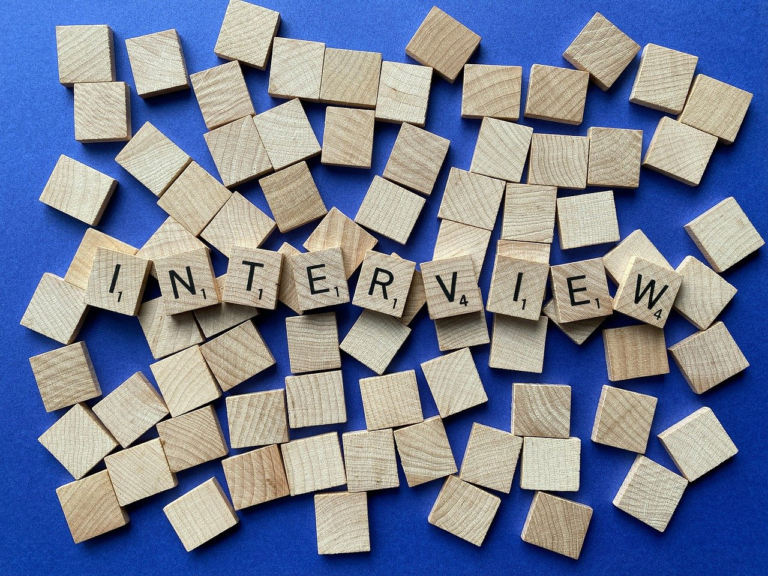Executive director interviews assess senior strategic leadership capacities crucial for organizational excellence. Discerning panels design incisive situational, behavioral, and competency questions uncovering applicant strengths. Mastering responses requires understanding core evaluation dimensions and intentionally demonstrating transferable vision and management abilities that inspire confidence in envisioning applicants as organizational stewards. Preparation, insight, and authenticity prove key.
Why the Right Interview Questions Matter
Meticulously crafted interview questions serve purposes beyond basic qualifications screening for critical director roles shaping organizational destinies. Ideal queries reveal:
Beyond Resumes
Profiles gloss over real competency depths and learning abilities masking growth limitations that surface through conversations. Discerning behavioral and situational questions exposes applied leadership wisdom unlearnable from classes alone. Discussing complex scenarios and past decision journeys uncovers response patterns predicting whether candidates will thrive on the job.
Cultural Fit
Values alignment and collaborative temperament indicators foreshadow cohesion with teams. Queries gauging working styles, change-embracing attitudes, and motivational ideals assess alignment to stated organizational culture foundations instrumental for retention and engagement enabling discharge of duties. Uncover fits allowing both parties meaningfully contributing towards shared mission legacies.
Uncovering Potential
Passion, agility, and emotional intelligence hinting at leadership effectiveness beyond hard skills offer interview glimpses indicating high ceilings given proper development. The effort invested in strengthening promising capabilities multiplies the organization’s impact over time as rising visionaries grow into destination roles through nurtured support. Deeper questions decode these signals.
Mitigating Risks
While assessing strengths, interviews crucially reveal blindspots, knowledge gaps, or inadequate strategic foresight that coaching cannot completely overcome. Identifying and contextualizing these limitations allows conscious mitigation steps minimizing adverse downstream decision risks should selections proceed. No leader knows everything but self-awareness proves foundational.
Thoughtfully designed questions asked by astutely observant interviewers make hiring processes invaluable risk-proofing governance mechanisms securing leadership codes that shape destinies.
The Stakes at the Director Level
Landing a director role holds life-changing significance for one’s career trajectory and leadership impact. Accordingly, interviewers thoroughly vet candidates ensuring aligned values and executive presence.
Interviewers seek leaders demonstrating:
- Executive Presence: Blending professional image, communication finesse, and interpersonal gravitas instilling trust. Directors represent organizations.
- Strategic Thinking: Capabilities assessing complex landscapes and then planning decisive moves to achieve sustainable growth objectives despite ambiguity.
- Strong Communication: Impactfully conveying vision while listening, unifying stakeholders, and tailoring messaging for clarity. Diplomatic responsiveness matters.
- Leadership & People Skills: Rallying, developing, and empowering teams while removing organizational barriers inhibiting cross-functional world-class execution.
- Relevant Expertise: Proven track records and transferable functional insights from past roles in priority areas like IT, Finance, and Marketing. according to situational needs.
Types of Director Interview Questions
Given far-reaching responsibilities, director candidate screening director interview questions deeply cover multiple-aptitude aspects, including:
Behavioral Questions
These assess past decision patterns predicting future performance. For example:
“Describe a time you persuaded senior executives towards a counterintuitive strategic direction that proved visionary. How specifically did you shift broader mindsets? What quantified business results emerged?”
Ideally highlight the clear understanding of initial reluctance, a structured persuasion approach taken alongside evidence-based perseverance that finally created followership and metric-verified successes. Tailor to role relevance.
Situational Questions
These pose realistic dilemmas in evaluating decision logic. Example:
“If facing severe revenue shortfalls halfway through the fiscal year 2025, how would you drive necessary course corrections? What specific data signals would help identify issues? Who needs inclusion when stabilizing plans?”
Outline concise processes leveraging forecasting analytics, cross-departmental coordination, and communications strategies that assure rapid responses given turmoil. Explain the rationale behind each priority named.
Technical Questions
These probe specialized competencies like software, regulatory, and scientific fluency. needed in certain sectors. For example:
“A new emissions reporting dashboard requires SQL database knowledge for custom views. How would you technically approach and complete implementation by regulatory deadlines?”
Demonstrate enough baseline conversance guiding technical staff delegations, asking insightful questions, and monitoring milestone progressions. Declare gaps plainly and address them through external expert outsourcing if required. Leadership does not necessitate full mastery – recognizing blindspots proves equally vital.
Leadership Questions
These questions evaluate the ability to empower peak performance across large teams:
“If inheriting a competent 12-person department with disharmony and lagging peer ratings, how would you reshape group dynamics for utmost innovation and fulfillment?”
Emphasize processes diagnosing suboptimal staff fitments, improving interpersonal understanding, refining collaborative workflows, injecting positive challenges, and instituting success metrics recalibrating cultures.
Strategic Questions
These questions weigh judgment crafting competitive plans, mergers, and market entry:
“As big data disruptions reshape industry cost paradigms, how must sustainable strategy evolve over the next decade? Guide capital allocation decisions.”

Demonstrate macro insight into shifting value chain economics, tech substitution risks, and opportunities to reconfigure capabilities ahead of rivals. Take a specific strategic stand justifying investments, partnerships, and talent priorities.
Culture Fit Questions
These assess alignment with stated values and working styles:
“When policies seem to contradict principles or inhibit agility, how have you influenced constructive improvements while preserving organizational culture?”
Portray measured approaches questioning outdated assumptions, suggesting alternatives through objective logic, and building coalitions around bold progress – securing willing, lasting change without needless confrontation.
Preparing for the Director Interview
Good interview preparation remains essential despite deep experience. Tactics ensuring sharpness include:
- Research Company: Absorb priorities from recent annual reports, news, and release strategies to showcase commercial fluency.
- Review Job Description: Note must-have technical and leadership preferences detailed to deliberately exhibit matching strengths through selected responses.
- Practice Responses: Refine succinct compelling answer structures for likely questions with quantitative examples demonstrating executable strategic insights when possible.
- Prepare Questions: Compose thoughtful queries about long-term visions, success metrics, and organizational culture conveying genuine engagement.
- Dress Professionally: Maintain fine-tuned formal consistent with senior status for projection confidence emitting executive presence first impressions.
- Arrive Early: Settle unrushed into the ideal mindset, reviewing notes before scheduled meetings without last-minute rushing anxiety sabotaging psychology. This optimizes interactions.
In the Director Interview
Beyond responses, impactful impression management tips help interactions:
- Maintain Professionalism: Speak clearly and make steady eye contact. Avoid distracting mannerisms or colloquialisms unbefitting of roles. Focus fully without multitasking.
- Actively Listen: Clarify understandings regularly. Take notes on what matters most to interviewers beyond just hearing yourself speak. React supportively to convey sincere interest.
- Communicate Clearly: Structure digestible high-level messages before addressing granularities. Welcome feedback checking if the level of detail hits the right chords for conversational flow.
- Provide Specific Examples: Quantify achievements, sample decisions, and development process specifics grounded in actions, not just concepts, for believable credibility conveying competencies.
- Ask Quality Questions: Pose informed queries about market outlooks, leadership philosophies, workforce satisfaction, and innovation ecosystems that deepen perceptions of strategic curiosity.
- Showcase Leadership: Frame experiences driving transformation through inspiration, political savvy, and outcomes. Boldly envision future improvements centered on value and empowerment.
- Emphasize Results: Spotlight transferable financial, operational, and team gains from past projects applicable to present scenarios conveying the ability to shape progress at scale.
- Be Passionate: Allow appropriate vulnerability and conviction around a people-centered vision balancing IQ and EQ – connecting values with value creation wins hearts crucial for unity.
- Be Yourself: Relax and have authentic conversations. Aligning strengths with organizational needs for mutual growth enables relationships founded on trust and partnership spirit.
Conclusion
Director interviews intensely vet multifaceted senior strategic leadership qualities through pointed situational, behavioral, and competency questions. Thorough preparation and authentic demonstrations of sound judgment, bold vision, and unifying team capabilities allow showcasing fit for enabling organizational excellence as a strategic director. Lean into conversations – the journey itself speaks volumes.





